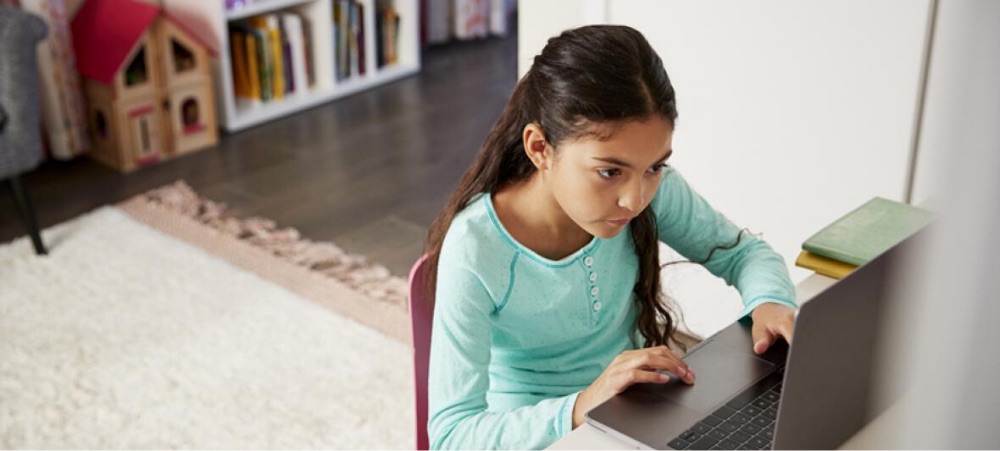
Blended Learning and why parents need to pay attention
What is blended learning? There is no single definition, but there is a general consensus that blended learning involves a combination of face-to-face (either onsite or online) with online experiences to produce effective, efficient and flexible learning. Blended learning does not mean online learning. Simply teaching online in a “virtual school” with a teacher presenting work does not mean you are effectively using a blended approach. Blended learning means using different techniques to assist in the learning process, combining classical teaching approaches with online experiences (such as visual aids including videos, infographics, interactive software, gamification etc.). The result is faster learning, a greater understanding of difficult and abstract concepts, and a more engaging, fun learning experience. Consider why blended learning is important before making your choice of a virtual school. Why blend? Improved lesson design Increased engagement Increased guidance and triggers Individualised learning support Social learning and critical thinking skills Increased focus 1: How does a blended approach improve lesson design? When designing a new blended course from a traditional one, it is important not to simply look at the course you want to teach and to arbitrarily decide which activities will from now on be online. Simply replicating onsite activities online (as many virtual schools do) will not yield good results. The resultant course will not measure up to the academic rigour, engagement and outcomes of a traditional onsite course. Here are the common pitfalls many virtual schools make: “Creating a class and a half”. Adding online activities to an existing traditional course online gives the students even more work to do, and will result in burn out. A blended approach needs to replace some aspects of the traditional course. Unfocused technology. Adding technology just for the sake of adding technology is not useful, and will create barriers to learning. The lessons must focus on the learning outcomes every step of the way. Misfit modes. Some onsite (in-person) activities will not be effective when forced online. Forcing it will result in missed opportunities. A blended course needs a redesign of the entire instructional approach. How do you avoid common pitfalls? First and foremost, a blended course must be learning-centred. Students and teachers must share the goals of the learning outcomes. They must work as a team to achieve the learning outcomes. A traditional approach of a teacher acting as custodian of information will not work. Teachers must be guided by a clear vision of a successful student as well as the knowledge, skills, attitudes, and abilities that the teacher must track and monitor. Teachers must focus on experiences that build knowledge, develop skills and form behaviour and attitudes. Adding activities and tasks without meaning should be avoided. Make sure the virtual school you are considering has a clear strategy for a blended approach, and are not simply replicating a traditional school experience online. 2: Increased engagement Engagement in a blended course is achieved in a meaningful way by including student-teacher, student-student and student-content engagement. Interactions increase rapidly online with students feeling more comfortable to approach the teacher, tutor or other students in group work using online meetings, emails or instant messaging. Content engagement is beyond simply reading a textbook or text-based materials and can be enriched by digital content (videos, animations, interactive simulations). Support in terms of one-on-one support or peer- support becomes quick and easy without the need for physical infrastructure. Ensure that the virtual school you are choosing does not rely on traditional textbook focussed teaching. Simply reading from a textbook online will instantly remind you of the days you sat in a classroom with your least favourite teacher. 3: Increased guidance and triggers There are a larger variety, increased frequency and a more focused manner of assessments. Teachers no longer need to do a few classes before being able to assess progress. Polls, quizzes, and interactive activities provide the opportunity for quick assessment with effective feedback. These assessments can be used as guidance and triggers to assist students in self-assessing what they need to focus on. Assessments can also focus on real-world and authentic problems in a much more accessible way online than onsite. Quickly showing something in a laboratory setting, an industrial plant or office park becomes easy with online video content for example. The best use of blended assessments involves those that provide instant and effective feedback. This enriches the students learning process and makes identifying misconceptions easy. Make sure that your virtual school has a handle of the students. Some schools have over 100 students in a class, some even up to 500 students. Make sure that you have a teacher-student ratio of 1 – 20 in the classroom. The ratio can be improved by the use of tutors, and avoid schools that make empty promises. You need a teaching team to handle classes with many students effectively. 4: Individualised learning support Since teachers often have access to detailed analytics on the class or the individual students, it becomes easy to identify who needs assistance and with which sections of the work. Learning activities that can assist in individual needs can then be incorporated and additional support from teachers and tutors becomes targeted. The virtual school must be able to tell you your student’s progress at a click of a button. Avoid schools that can’t – they are not focussing on individual needs. 5: Social learning and critical thinking skills Social learning or community-driven learning often focuses on higher-level cognitive skills – in short, “critical thinking”. They emphasise social aspects of being human, expose students to different perspectives, allow deep reflection and increase participation. A blended environment provides a flexible way for students to participate (less time and place constraints) while having to carefully consider and search for evidence to substantiate claims, thoughts or ideas.Social interaction is needed. Make sure that students don’t feel isolated in your choice of school. 6: Increased focus Students are not limited by place and time, and time gets freed up by not moving so frequently to


































